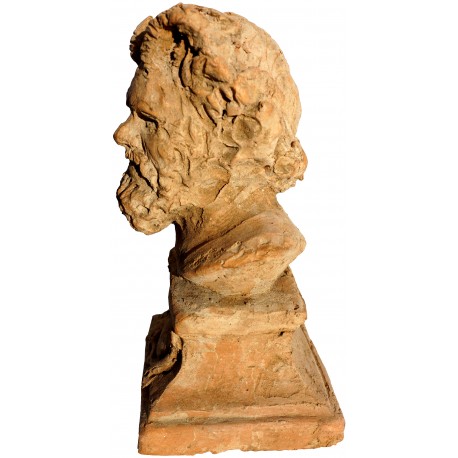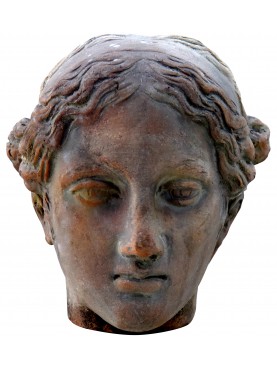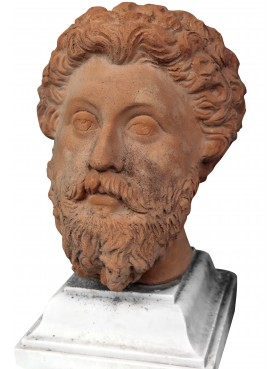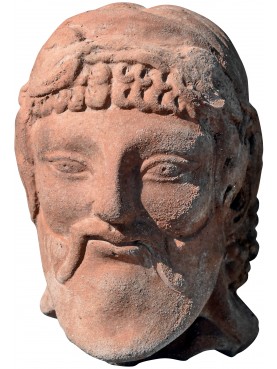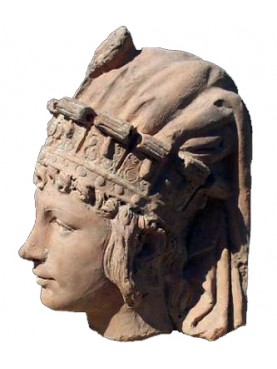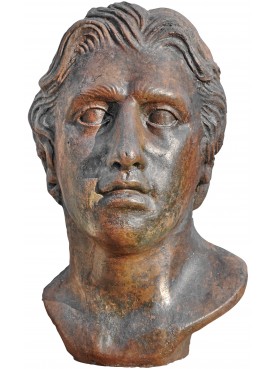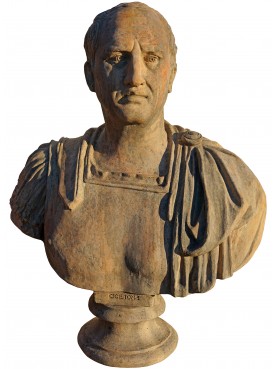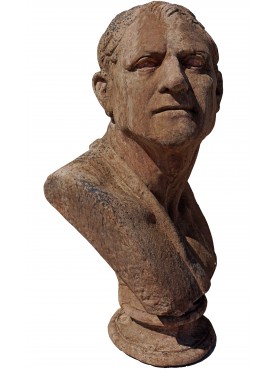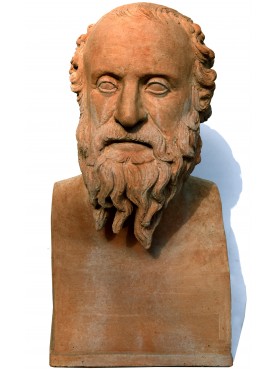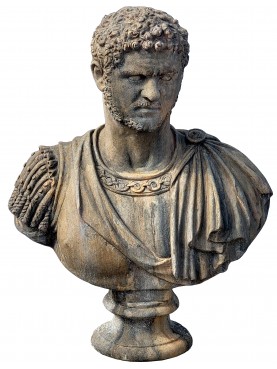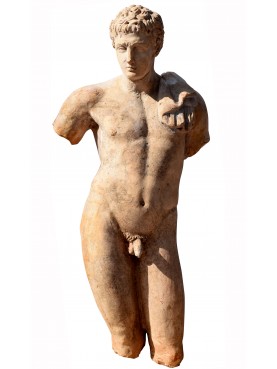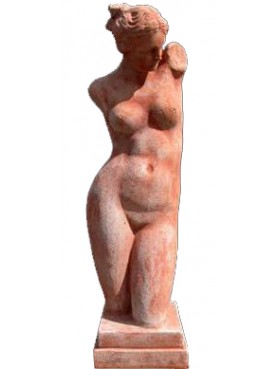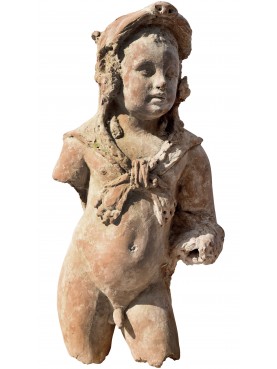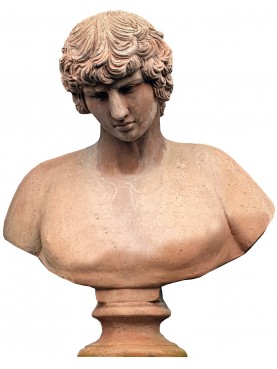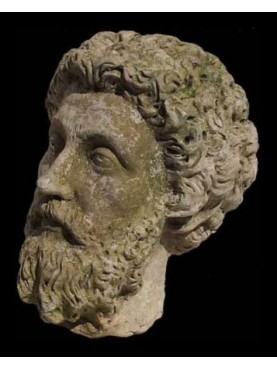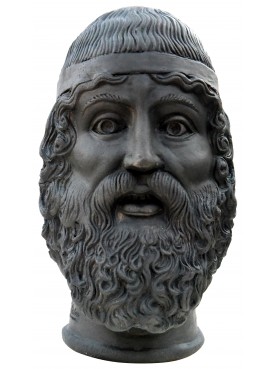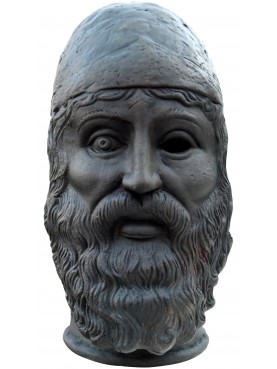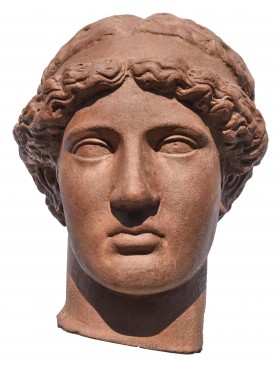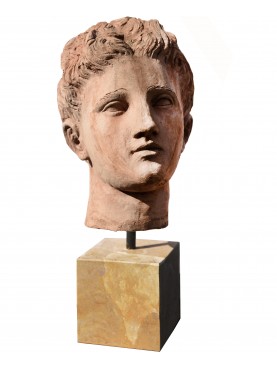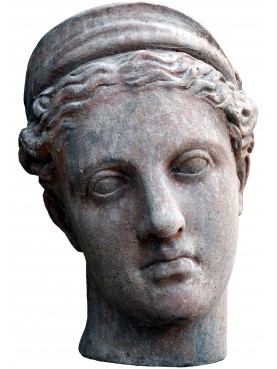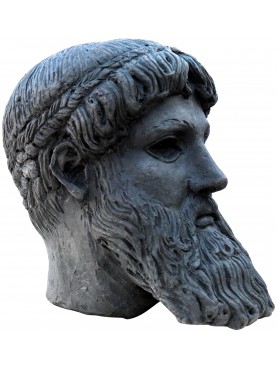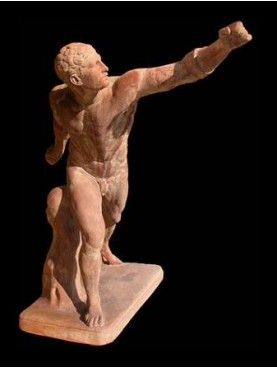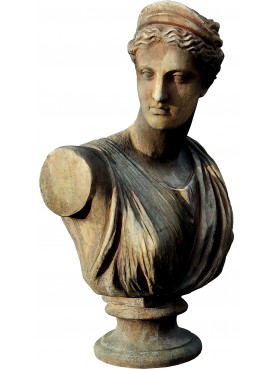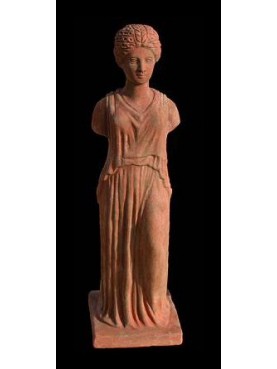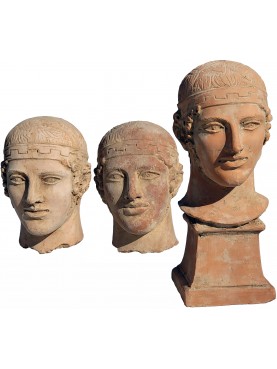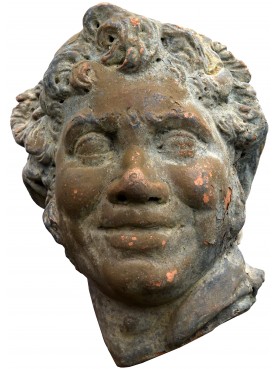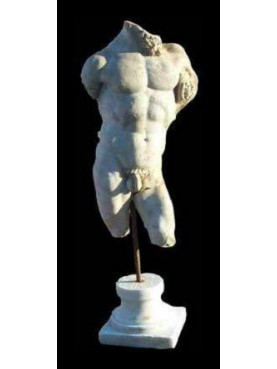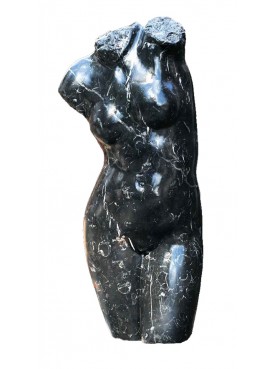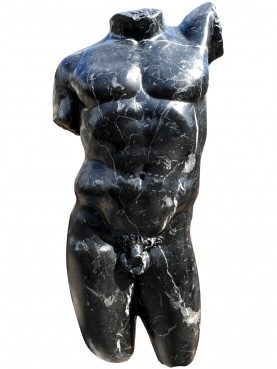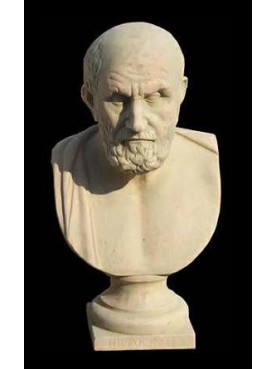Head of the god Pan, Free copy from a pan in the Capitoline Museums
Head of the god Pan, Free copy from a pan in the Capitoline Museums
14284
New
Free academic copy of the figure of a faun, taken from a Roman sarcophagus of the late period with "Bacchantes" scenes, the presence of grapes in the hair denounces its clear belonging.
This artifact is "hand sculpted" not derived from a cast, any replica will be slightly different from this specimen.

This product is no longer in stock
Data sheet
| Height | 7.87 in | 20 cm |
| Width | 3.94 in | 10 cm |
| Depth | 3.94 in | 10 cm |
| Weight | 2.2 lbs | 1 Kg |
| Manufacturing | Made in Italy | |
| Material | Terracotta |
More info
Faunus was the god of the countryside, pastures and agriculture, opposed to the god of the woods, Silvanus. He was also called "Luperco", as a defender of the flocks and the inhabitants of the countryside from the assaults of the wolves and wolf himself (Lupercus = lupus + hircus).
It is one of the oldest Italian divinities, as well as the founder of the Salii and the Luperci, the two sodalitates dedicated to the initiatory cult of Mars. His pastimes were hunting and courting nymphs. He loved playing the flute and was a bearer of sexual instincts. His appearance was human in form, but with goat-like legs and horns on his head.
In some versions of the myth, Faun is identified with an ancient king of Lazio, nephew of Saturn or Mars, son of Pico and Canente or Pomona and, according to the Aeneid, father of Latinus, who after his death was venerated both as protector of crops and herds (Inuus), and for his oracular faculties (Fatuus). According to a Latin version, Fauno was the son of Jupiter and the sorceress Circe. His wife was Fauna, also called Fatua; in later versions he was associated with the Greek god Pan, as well as with the Satyr. According to Roman myths, later taken up in the Aeneid by Virgil, Faunus was the husband of Marica, divinity of the waters, from whom he had Latinus. Together with a Sicilian nymph he would instead have generated the beautiful shepherd Acis.
For others he would have been the third prehistoric king of Italy and would have introduced the cult of divinity and agriculture to the peninsula. After his death many honors were dedicated to him and he was venerated as god of the woods, protector of flocks and herds. According to other sources, the Fauns would have been ancient shepherds, inhabitants, at the dawn of the world, in the territory on which Rome would be founded[1].
In the Aeneid reference is also made to a Faun bearing the same name as the god: he is the father of the young Italic warrior Tarquito, killed by Aeneas in combat. Tarquito still turns out to be a demigod, as his mother is the nymph Dryope.
Bacchantes, follower of the orgiastic cult of Bacchus in ancient Rome.

